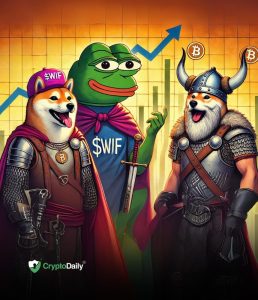A new launchpad for memecoin on BNB Chain called GraFun is about to be launched.
Since the news was announced, it has already gathered more than 3.8 million pre-registrations, with over 300,000 users who have funded their wallets in anticipation of the launch.
GraFun: how does the new launchpad for memecoin on BNB Chain work?
This is a next-generation memecoin launchpad, based on BNB Chain.
One of its innovations is the so-called Fair Curve, created to minimize the risks of rug-pull, and price manipulation, with the aim of ensuring truly fair launches.
The new launchpad is supported by Floki, DWF Labs, DeXe Protocol, and HOT Protocol.
Floki is one of the most important memecoin, while DWF Labs is a next-generation liquidity partner. DeXe on BNB Chain turns out to be one of the top 3 dApps for TVL, while HOT Protocol is a rapidly growing on-chain application with 20 million users.
The innovation of the new memecon launchpad on BNB Chain: GraFun in detail
The traditional bonding curve model on which memecoin launchpads are based tends to favor early adopters, at the expense of sustainable growth. This generates strong price fluctuations with the risk of market manipulation.
In such a scenario, pump-and-dump schemes and bot-driven attacks are frequent, but GraFun aims to correct these flaws with its Fair Curve.
This curve starts with the same formula as traditional launchpads, namely the classic AMM model x * y = k. However, it also introduces a contribution fee, which decreases as the curve progresses.
So at the beginning, users on one side benefit from the lower price of the token, but purchases are subject to a contribution fee of up to 60%. Instead, as more tokens are purchased, and the bonding curve progresses, the fee gradually decreases, reaching 0% only at the end of the token sale. This should ensure a fair entry even for subsequent buyers.
The contribution commission
The contribution fee is not lost, and it is not absorbed by the creator, but it is deposited in a DAO Treasury. Once the curve is completed and 80% of the tokens are sold, the token migrates to PancakeSwap and the DAO funded by the Treasury is created.
At that point, the token holders automatically become part of the DAO, obtaining governance rights over the Treasury directly on the DeXe protocol.
This also means that the first buyers, even though they are buying at the best price, have to wait for more buyers to arrive before making significant profits, as they have to pay the fees that go to the DAO.
This design also serves to discourage bots and short-term speculators, to reduce volatility and to create a more stable price trajectory.
The DAO: how to participate
As the tokens are sold, and the fees are assigned to the DAO, the total supply available for sale decreases, thus creating more room for potential price growth after the listing.
The objective is to make the launches on GraFun safer and more attractive for long-term speculators.
The DAO is created on the DeXe protocol, and gives each token holder a vote.
This ensures that decisions are not centralized, as is the case on other launchpads.
The Treasury of the DAO can also be used for listing fees, liquidity provision, marketing, or even development grants, in order to provide a solid foundation for future growth. The DAO also supports rewards for on-chain voting, with 1% incentives per vote that encourage active participation in governance.
BNB Chain
BNB Chain is the former blockchain of Binance (BSC), now decentralized.
For TVL it is the fourth chain in the world, ahead of Arbitrum.
The two major DeFi protocols for TVL on BNB Chain are the well-known Venus and PancakeSwap, although lately they have been struggling a bit with competition from other chains, such as Solana.
For example, the maximum TVL of the then BSC was reached in May 2021, when it briefly surpassed 22 billion dollars.
During the bear-market of 2022, it fell below 6 billion, and the decline continued in 2023 until it reached 2.6 billion in October.
Since then it has risen to 4.8 billion, but it is still very far from the highs.






















